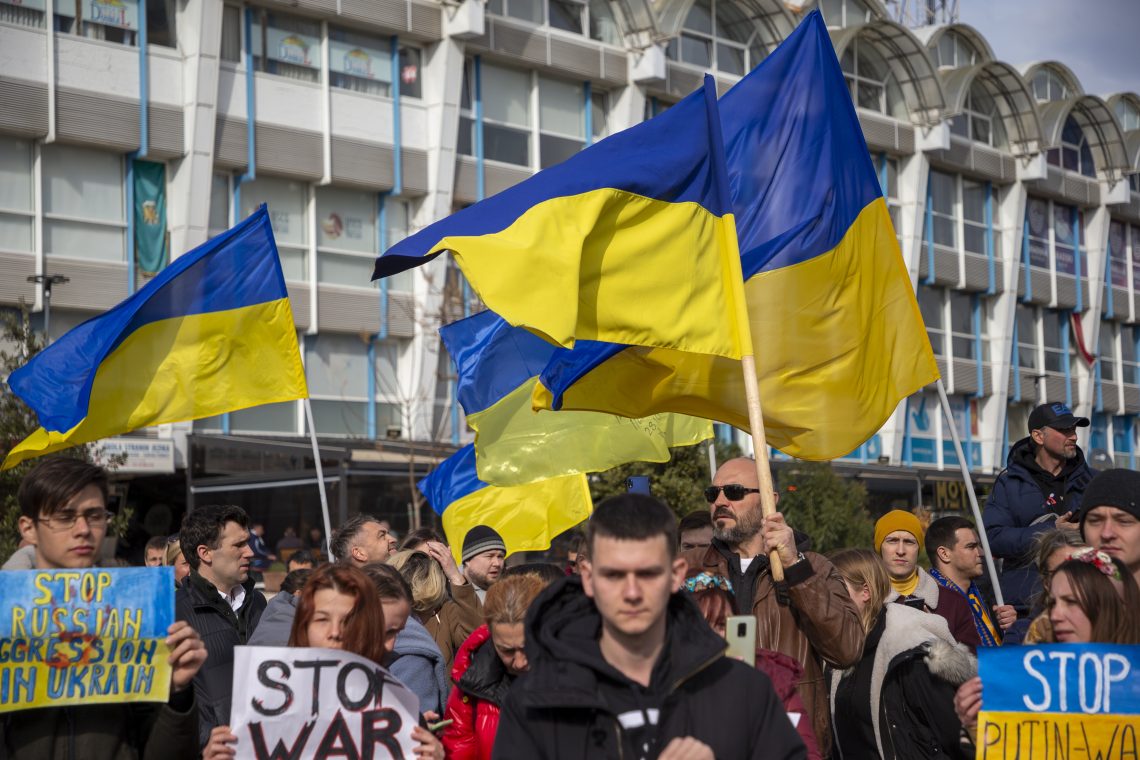EU enlargement after Ukraine
If the EU does not reconsider its enlargement policy, more European countries could fall prey to Russian aggression or influence.

In a nutshell
- Strong support for Ukraine could reboot EU enlargement
- Balkan countries aligned with the West could join in the same round
- Serbia’s ties with Russia will jeopardize its EU prospects
Russia’s invasion of Ukraine will affect EU enlargement, likely delaying the accession of the six Balkan countries. Ukraine, Georgia and Moldova have now also applied for EU membership. It is unlikely that Chisinau and Tbilisi’s request will be prioritized, but Kyiv’s will be taken seriously.
EU vs. Russian ‘enlargement’
Even after two decades, the accession prospects of the Western Balkans remain unpredictable. In the main EU countries, only 20-30 percent of citizens are in favor of the Balkan states joining the Union, compared to 42-60 percent for Ukraine.
Now that Russia has invaded Ukraine, the EU will also be evaluating applicant countries’ stance toward Moscow. The first test of this new condition will be Serbia, which is negotiating accession but is the least aligned with the EU’s common foreign and security policy. Belgrade has not imposed economic sanctions against the Kremlin and buys weapons from both Russia and China. If Brussels is serious about introducing a “Russia clause,” it will have to stop tolerating such behavior.
The West cannot implement its strategy if it lets southeastern Europe fall into a political vacuum.
With the war in Ukraine, enlargement will become an increasingly geopolitical process through which the EU can boost its global influence. After the 2004 and 2007 waves of enlargement, the EU adopted a more restrictive approach toward the Western Balkans and Turkey. Two decades later, only one state – Croatia – has joined, in 2013. However, with Ukraine on the fast track to accession, the EU could include the Balkan states in this new enlargement round.
Three challenges
Europe’s geopolitical situation has changed, and so have the security priorities of the Euroatlantic community. On March 24, U.S. President Joe Biden participated in an extraordinary NATO meeting, sending a message of unity to European allies.
The West cannot implement this strategy if it lets southeastern Europe fall into a political vacuum. There are three issues in particular where the EU’s “global power” has been lacking: the Brussels dialogue between Kosovo and Serbia, the North Macedonia and Bulgaria issue, and Bosnia and Herzegovina’s internal political crisis.
Kosovo and Serbia have different strategic orientations. Belgrade remains Russia’s main supporter in the region and the most euroskeptic: 95 percent of the population view Russia favorably compared to only 21 percent for the EU. Meanwhile, the citizens of Kosovo are the most pro-Western in the Balkans, with 95 percent in favor of NATO and 93 percent for the EU.
Facts & figures
In the last 11 years, the European Union has been mediating between them with poor results. President Aleksandar Vucic’s reelection is unlikely to move things forward, especially considering his arms purchases from Russia and China and his remilitarization of Serbia.
In mid-April, Kosovo reported that its border police had faced four attacks carried out with grenades and machine guns. Prime Minister Albin Kurti stated that the Serbian government was involved in one of these incidents. The EU delegation and American Embassy in Pristina both condemned the events.
The Union has also failed to mediate between Bulgaria and North Macedonia. The former, an EU member state, is blocking the accession of the latter. Since the first veto in 2019, North Macedonia has lost 260 million euros in EU funds designated for accession negotiations. Even with a new government in Sofia, the veto is likely to remain in place, and despite pressure from Brussels and Washington Bulgarian Minister of Foreign Affairs Teodora Genchovska has said she does not expect a solution to be found during France’s EU presidency.
During her visit to Sofia in April 2022, European Commission President Ursula von der Leyen asked that Bulgaria allow the start of accession negotiations with North Macedonia and Albania. German Foreign Minister Analena Baerbock made a similar request. If the Bulgarian government fails to do so, it is likely that Albania’s accession procedure will be decoupled from North Macedonia’s, as Albanian Prime Minister Edi Rama requested in April 2022.
Meanwhile, Bosnia and Herzegovina’s internal political stability is under threat because of obstructions from Republika Srpska leader Milorad Dodik, an ally of Russian President Vladimir Putin. Already under U.S. sanctions, Mr. Dodik was recently placed under additional restrictions by the United Kingdom because of his subversive separatist activities. On April 15, Germany announced it was canceling a 105 million-euro aid package for Republika Srpska for the same reasons.
Other dilemmas
Apart from Russia, with which the EU no longer has diplomatic relations, China poses another geopolitical challenge. Beijing is friendly with Moscow, but it also wants to protect its interests by maintaining access to EU markets. It is also unlikely that China would sacrifice the Balkan leg of the Belt and Road Initiative only to support Russian adventurism. But the EU will try to limit this economic penetration in its common market.
The next EU enlargement challenge will be Turkey, whose international standing has recently been boosted by its mediation during the Ukraine war. Turkish President Recep Tayyip Erdogan has requested that the EU reopen the accession negotiation process, which started in October 2005 but has been on hold since 2016 because of Ankara’s detention of political prisoners. In 2020, the European Commission answered that: “Turkey continued to distance itself from the EU with serious regress in the field of rule of law and fundamental rights.”
Enlargement and internal reform
Enlargement in the Western Balkans is also dependent on internal EU reform. Not only is there an ongoing debate on the future of the Union, with new ideas emerging like President Macron’s “European political community,” but there is also a new rule-of-law requirement for member states to receive funding. Based on that provision, the commission initiated a legal probe against Hungary in April 2022. Last October, the European Court of Justice punished Poland with a fine of one million euros per day for political interference in the judiciary.
The invasion of Ukraine could teach the EU the risks of leaving countries out of the Euroatlantic club.
Top EU officials have defended ongoing procedures against Hungary and Poland, citing concerns of judicial independence and democratic backsliding. But given the geopolitical context, it appears risky for the EU to take aggressive measures against two member states bordering Ukraine.
Scenarios
At least two scenarios are possible: one optimistic and one pessimistic.
Under the optimistic scenario, the invasion of Ukraine will teach the EU the risks of leaving countries out of the Euroatlantic club. It could push the Union to accelerate the accession process for Ukraine, and to include Balkan countries that condemn Russian aggression. This new enlargement round would most likely take into account the security and foreign policy of new member states. This raises the question of whether Serbia would be eligible because of its pro-Russian policy; its accession could be put on hold like that of Turkey. The other five Balkan applicants are clearly aligned with the West.
Under the pessimistic scenario, the war in Ukraine will postpone EU enlargement, concentrating diplomatic engagement and financial resources on the armed conflict. This is especially likely if Russia invades other countries. Dealing with peacebuilding may monopolize the resources needed to speed up enlargement in the Western Balkans.








